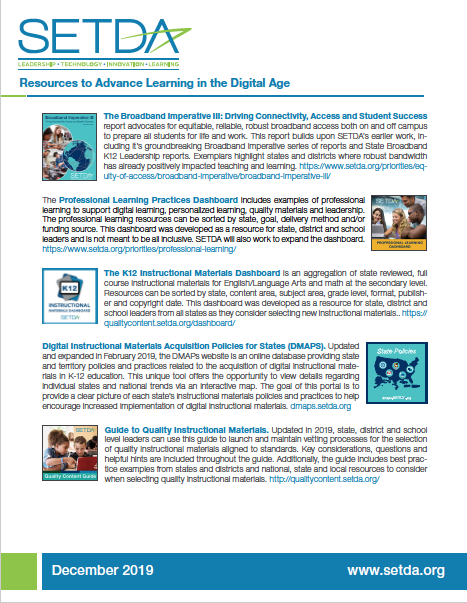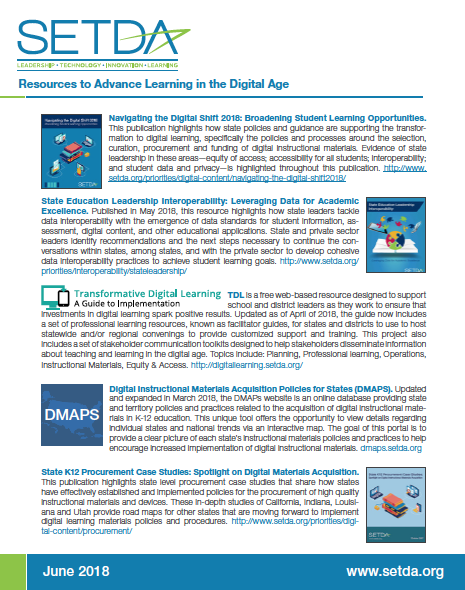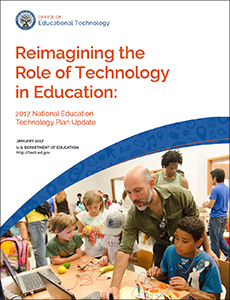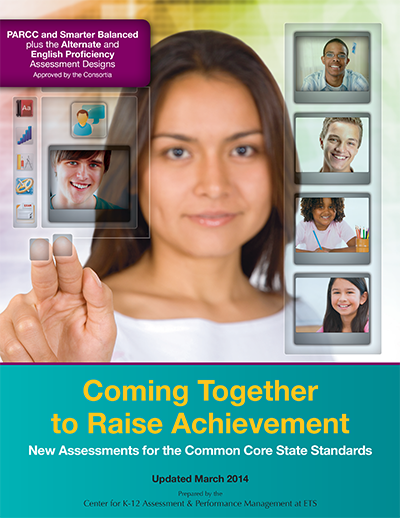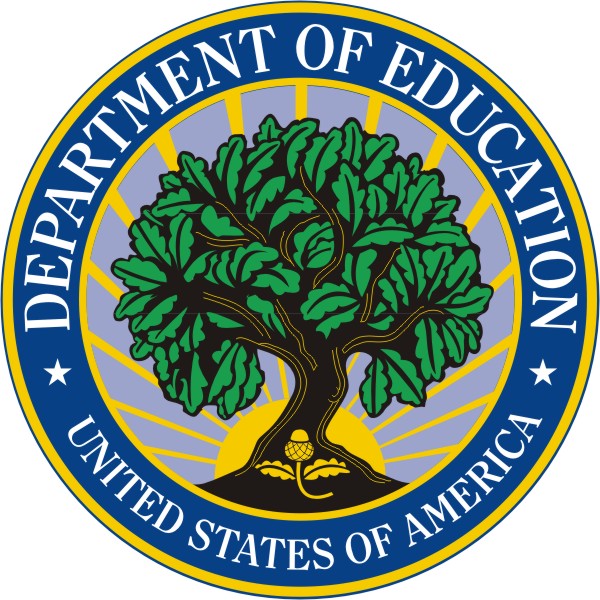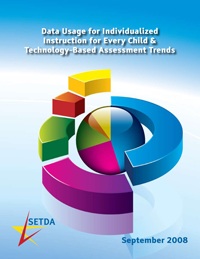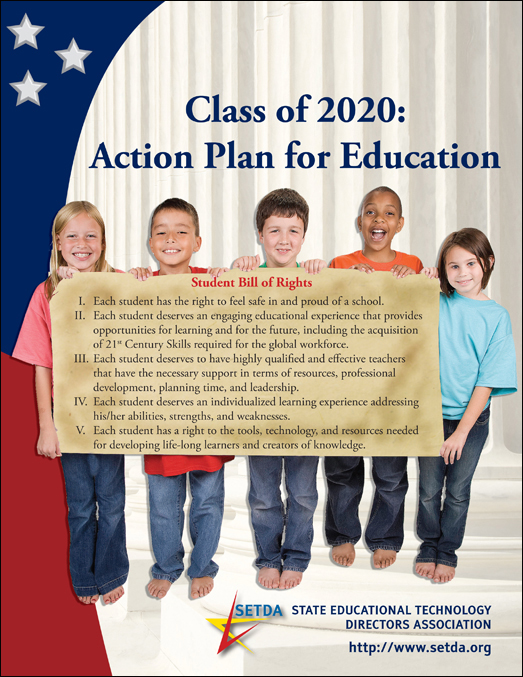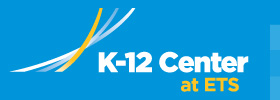FILTER RESOURCES
Categories
Formats
Topic Areas
Reset FiltersInsights and research from our members, for our members and the public
Use the filter box on the right to locate the resources meeting your criteria.
2017 National Education Technology Plan (NETP)
The National Education Technology Plan articulates a vision of equity, active use, and collaborative leadership to make everywhere, all-the-time learning possible.
Coming Together to Raise Achievement: New Assessments for the Common Core State Standards (5th Edition)
This report contains consortia-approved summaries of their ongoing work as well as articles about technology readiness, near-term challenges and future opportunities to enhance the power of these systems to support student readiness for college and careers. SETDA’s Doug Levin and Geoff Fletcher co-author an chapter titled “Crossing the Chasm to Digital Teaching, Learning and Assessment” […]
CCSS Assessments: Are you ready?
The Race to the Top Assessment program is ambitious and has the potential to help make far-reaching changes not only in how students are assessed, but also in how teachers teach and students learn. One important feature shared by both the PARCC and Smarter Balanced assessment systems is that student assessments will be technology-driven. About […]
National Education Technology Plan 2020
The National Education Technology Plan is the flagship educational technology policy document for the United States. The Plan articulates a vision of equity, active use, and collaborative leadership to make everywhere, all-the-time learning possible. While acknowledging the continuing need to provide greater equity of access to technology itself, the plan goes further to call upon […]
SETDA Report: Technology Requirements for Large-Scale Computer-Based and Online Assessment: Current Status and Issues
This report provides a snapshot of the current technology requirements for select states implementing large-scale, online summative assessments (and for formative and other assessments when available). In addition, it presents a list of issues for the Race to the Top consortia and states to consider as they make decisions regarding their technology requirements for initial […]
Technology-Based Assessments Improve Teaching and Learning
This paper focuses on the use of technology-based assessment systems to provide classroom teachers with innovative approaches for improving instruction for all students. Additionally, the report calls on states to redefine its role as “Data Compliance Officers” to “Data Leaders” – supporting the use of relevant, timely data at the school and district levels to […]
Class of 2020 – Action Plan for Education
SETDA’s Class of 2020: Action Plan for Education Project includes the development of the five publications listed below designed to create a succinct message addressing technology’s transformative role in education in the hopes of informing future education and workforce development policy at the state and federal levels.
State Education Policy Center
State Education Policy Center (SEPC) is a database of state policies related to education and technology curated by the State Educational Technology Directors Association (SETDA). Find links to SEPC listings for each state within our membership listings here on SETDA.org, or visit SEPC to browse policy across the US.
Coming Together to Raise Achievement
Doug Levin and Geoff Fletcher co-author an article within this report titled “Will Schools be “Technology-Ready” to Administer Next Generation Assessments?”
Netcraft Analysis: Online Speed Testing Tools
This report is an analysis of online speed testing tools includes detailed information on tools provided by SpeedTest.net , Education SuperHighway’s School Speed Test , and the Smarter Balanced Assessment Consortia’s bandwidth check diagnostic tools. It presents a detailed description of each tool, including its strengths and weaknesses, followed by observations based on measured data. […]
Technology Readiness for College and Career Ready Teaching, Learning and Assessment
This guidance is targeted to policymakers and K-12 school leaders interested in addressing school technology readiness needs for college and career ready teaching, learning and assessment. PARCC and Smarter Balanced released guidance regarding minimum technology requirements in December of 2012. However, education leaders must consider these minimum requirements in the context of the full range […]

